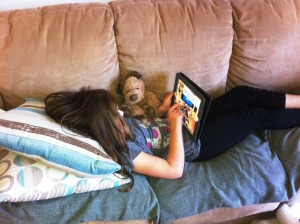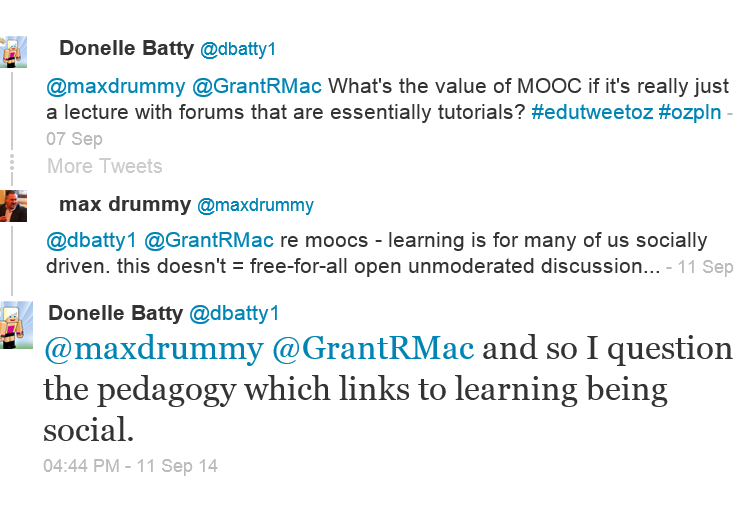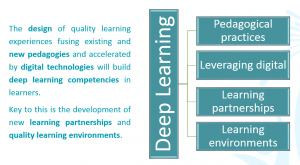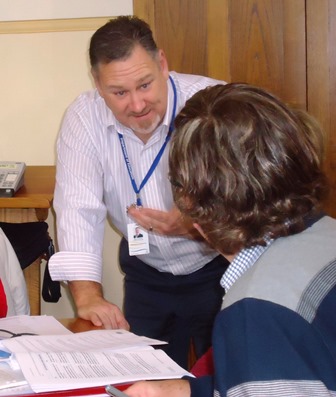 My daughter can immerse herself in learning in ways I could only have dreamed of at her age! I watch her, slightly enviously, as she travels across the solar systems and oceans, and talks (or at least listens to) real live astronauts and experts of choice. Instead of reading thru a couple of possibly musty, dusty, static books about space, she can soar thru galaxies. How magnificently engaging.
My daughter can immerse herself in learning in ways I could only have dreamed of at her age! I watch her, slightly enviously, as she travels across the solar systems and oceans, and talks (or at least listens to) real live astronauts and experts of choice. Instead of reading thru a couple of possibly musty, dusty, static books about space, she can soar thru galaxies. How magnificently engaging.
The change in our learners’ capacities to access and engage with information, and the increasing impact of media and technology on how young people learn and relate to the world and to each other is a huge driver for being a part of the New Pedagogies for Deep Learning Partnership.
A question for me is how do we turn this Rich Learning into Deep Learning; several drivers seem to push us in this direction more and more strongly.
A recent book excerpt, Teaching for Meaningful Learning, by Brigid Barron and Linda Darling Hammond finds that:
• Students learn more deeply when they can apply classroom-gathered knowledge to real-world problems, and when they to take part in projects that require sustained engagement and collaboration.
• Active learning practices have a more significant impact on student performance than any other variable
• Students are most successful when they are taught how to learn as well as what to learn
We see more and more reports from industry and employers nominating skills such as critical thinking, communication skills, problem solving, initiative – these again confirm for me the need to be explicit about developing the 6 C’s – Deep Learning Competencies.
Shifting Rich Learning to Deep Learning revolves around knowledge construction, and about application of this knowledge in new contexts. It’s about intentionally building learning processes that allow us, and our learners, to navigate unknown learning territory, and emerge with fresh understandings, ways of being, and banks of knowledge that lead to action.
And for me this in one of the most exciting aspects of the project – the opportunity to connect and collaborate with other leaders and teachers, and then connect our learners in work that means something, work that is about learning about each other and acting together to address real issues that affect us all. Developing the 6C’s is critical to continuing to build a productive and effective global society, and doing this work with likeminded colleagues and countries is a huge lever in its sustained success.
Deep Learning must have this authentic base of engagement for both us as teachers and our learners.
An explicit and intentional focus on designing to develop the 6 C’s leverages Rich Learning and shifts it toward Deep Learning. Creating the conditions to support, measure and test this line of thought remains a challenge.

But Rich Learning alone won’t create tomorrow’s astronauts.
Image source:
http://upload.wikimedia.org/wikipedia/commons/e/ec/Young_Galaxy_Accreting_Material.jpg



